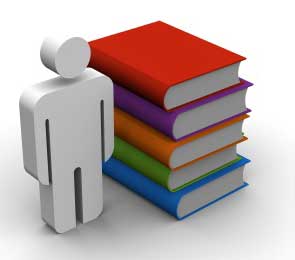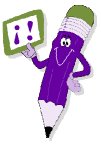Key Competencies Kit
for Facing Lifelong Learning


 |
This Project has been funded with support from the European Commission. This communication reflects the views only of the author, and the Commission can not be held responsible for any use which may be made of the information contained therein. |
 |
Didactic Unit 3 |
Theme |
Time |
Skills for effective lifelong learning 2 |
recognise an ability to engage in LLL; |
5 hours |
assess personal strengths and areas for development; |
||
identify and assess learning sources and opportunities (select and analyse relevant information); |
||
use information appropriately to solve defined problems;reflecting on learning process; |

There are many testing tools developed for assessing learning abilities on different subjects and for learners of different ages and backgrounds. It may be easy for you to learn computer literacy but difficult to learn foreign language, or vice versa.
 |
Your path for most effective learning is through knowing:
|
Adult learners, as they return to learning, often question and re-evaluate their original assumptions and motivation as they use learning to recreate their lives.
The following steps will help you to better understand how you learn:

 |
Begin with the past:
|



Skills needed for effective learning:
|
 |
There are common principles of making your learning effective applicable to adult learners with different backgrounds. Make your learning active. Your learning will be more successful if you:
|
There are several universally important skills for effective learning:
Active listening:
Listener focuses his/her attention in order to understand what is said. This does not mean you agree with, but rather understand, what they are saying.
Looking/seeing:
Look at images, such as pictures and graphs and maps. Try to understand the use and importance of each image.
Learning styles and preferences vary for each of us and in different situations. |
 |
Smart study tips:
What exactly should you be doing during your study time?
 |
While learning you must study and digest a huge volume of information. Therefore Information literacy become important skill for effective lifelong learning. |
An information literate individual is able to:
Information literacy is recognized as:
Information can be sought for various reasons: sometimes for study-purposes, sometimes for work-related needs. Information can be sought by discussing with colleagues, reading, watching television, using the Internet or consulting a friend, a teacher or library staff.
The information seeking method that is chosen depends on the situation or the task at hand. The Internet seems to be the most popular information source at the moment and it is necessary to be able to use it efficiently in order to survive in modern society.
 |
Because information sources and information-seeking tools are constantly and rapidly transforming, it is necessary to update one's information-seeking skills every once in a while. This means that learning such skills has to be viewed as a life-long process, not something one can learn during one single course. |
The choice of information seeking methods and sources used during the information-seeking process depends on the subject and the field of study. Before learning the specific details about seeking information that is relevant to their own study fields, it is recommended that learners gain a little more general understanding of the nature of different information sources.
Because of the information overload problem that is facing every information-seeker, it is important to be able to limit the search in order to find information that is relevant and make sure that relevant information sources are not missed. |
When defining the information need, the first step is to ponder the following questions:
|
Analyzing the information need in this way before conducting the search is a good way of reducing the time and effort spent in actually seeking the information.



Read each statement and consider how it applies to you. If it does apply to you, mark Y. If it does not apply to you, mark N.
.
1. Y__ N__ I spend too much time studying for what I am learning.
2. Y__ N__ I usually try to study with the radio and TV turned on.
3. Y__ N__ I can't sit and study for long periods of time without becoming tired or distracted.
4. Y__ N__ I often find myself getting lost in the details of reading and have trouble identifying the main ideas.
5. Y__ N__ I rarely change my reading speed in response to the difficulty level of the selection, or my familiarity with the content.
6. Y__ N__ I often wish that I could read faster.
7. Y__ N__ When I get to the end of a chapter(or training programme, module), I can't remember what I've just read.
8. Y__ N__ I don't know how to pick out what is important in the text.
9. Y__ N__ I often find myself getting lost in the details of reading and have trouble identifying the main ideas.
 |
Answers to the questions and exercises of Didactic Unit 3 |
1.
2.
If you have answered "yes" to two or more questions in any category, you need to pay attention to learning skill for those categories. If you have one "yes" or less in a category, you are probably proficient enough in these areas.